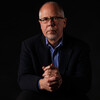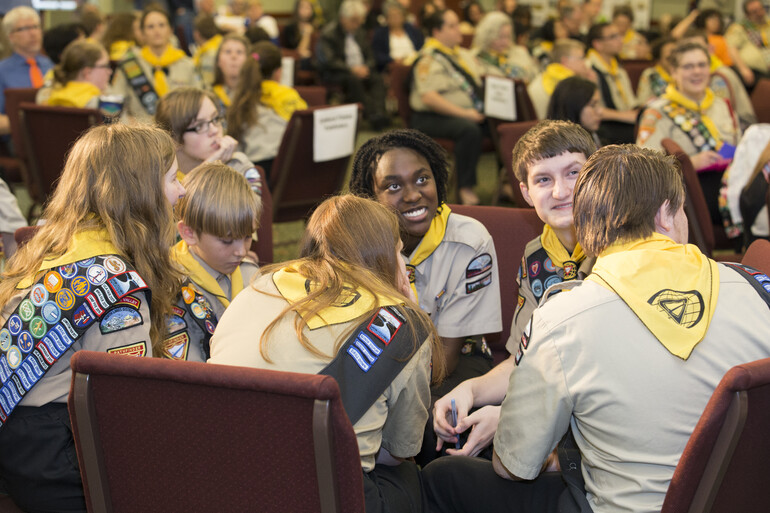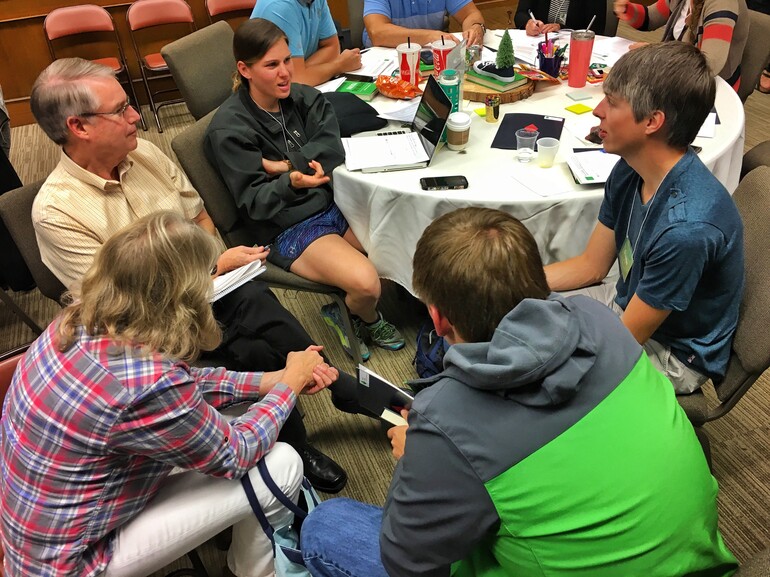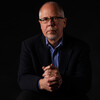First a story: An overwhelmed teacher and a small group of overactive grade-schoolers led to an epiphany of sorts. After all, what child wouldn’t jump at the chance for a full day of recess? So, while their harried teacher leaned wearily against a tree and closed his eyes, as was his custom during the morning break, the scheming schoolmates got a rope, ran around and around the tree with it, and secured the end, effectively pinning the hapless instructor in place.
There were only 10 or so kids in that one-room schoolhouse, but all of them had recess all day — that is, until they realized their impending doom. It would not look good for their parents, who would soon arrive to pick them up that afternoon, to find the teacher tied up. So, they told the teacher they would untie him if he promised not to tell what had happened.
This he agreed to. After all, he didn’t want the parents to know how out of control things had gotten. And, the truth is, he never did tell. But neither did he ever stand by that tree again.
Would it surprise you to know that one of the youngsters of this escapade is now older, wiser — and in charge of youth and young adult ministries for the North Pacific Union Conference?
Rob Lang, newly installed director, understands firsthand that the impetuous actions of young people provide a crossroads of sorts. If coupled with encouragement, mentorship and guidance, those immature characteristics can be developed into strengths. God can shape their youthful energy, their passion and spark, to bring glory to Him.
“My passion is to help young people see Jesus for who He is, find their saving relationship in Him and then strengthen intentional discipleship in their teen years,” says Lang. “We need to intentionally help our young people come to terms with their faith — what a spiritual journey of growth looks like on a day-by-day basis.”
Recently the Gleaner interviewed Lang about his vision for children, youth and young adults within the Northwest. You can listen to the GleanerTalk audio podcast of that interview online at gleanertalk.gleanernow.com.
GLEANER: You have worked extensively in the Oregon Conference and then most recently in the Georgia-Cumberland Conference. What drew you back to the Pacific Northwest?
LANG: We have come to realize the Lord is doing something special here with church administrators throughout the NPUC. With God’s help and for His glory, my wife, Velvet, and I believe God is calling us to encourage and strengthen the ministries to our most prized possession, our young people. We want to partner with the Holy Spirit to better empower our young people for the times we are living in. We’re excited, blessed and humbled by the task. We pray for Holy Spirit-driven change in our church culture.
HOLY SPIRIT-LED CULTURE CHANGE
GLEANER: What do you mean by Holy Spirit-driven change?
LANG: As they are understanding the gospel, our young people need to discover the joy of using their gifts in partnership with God and to engage in the life of His family. How can we change our current culture to allow that to happen, more intentionally, more decisively, more effectively? I pray that we can help each young person — children, youth and young adults — see clearly the stepping stones they can take now (not some day in the future) to become a positive, functioning part of the body of Christ. I hope to expand a process we've already piloted called DiscipleTrek, which is a three-week camp experience where young adults help campers develop their own faith and celebrate Scripture truth in attractive and creative ways.
GLEANER: Has youth ministry always been a focus of yours?
LANG: Once I started in ministry out of college, I realized that my heart always had a beat for young people. I began to see that this was my calling, this was my passion. Velvet and I have had a wonderful journey, sensing the deepest fulfillment in doing this work.
GLEANER: As you move forward in your ministry here, what do you see as the vision ahead?
LANG: Well, first off, we want to listen to our existing youth ministry leaders and help support, enhance and strengthen them in what is already working well. We also want to bring that 30,000-foot level overview to collaborate together on how we can all become more intentional about youth discipleship. How can we harness children’s ministries, Pathfinders, Adventurers, youth ministry, camp ministry, public campus ministry, young adult ministry? How can we as a team be more intentional and effective for the Lord in this process of discipleship? And, ultimately, what that means to me is to better empower and mentor young people in using their gifts in partnership with the Lord. There is nothing more fulfilling in this life than being a part of making an eternal difference with your life. As we support current programs, evaluate, talk and pray, I believe we will see the Holy Spirit help us become even more effective.
GLEANER: How do you evaluate and determine whether discipleship is actually happening?
We need to intentionally help our young people come to terms with what a spiritual journey of growth looks like on a day-by-day basis.
LANG: Our metrics as an organization are currently tithe and baptisms — and we need to continuously be measuring those. But when someone is baptized, is that the end of the vision that Christ has for them? Our focus needs to shift to helping our young people move onward to using their gifts in a consistent manner for God. How do you measure that? Could we measure that? Would it be God-honoring for us to measure that? Can we help youth use their gifts effectively, to flourish in the biblical plan called church? As we are doing youth ministry, we certainly need to know the end goals of discipleship and work together to that end. Are our programs just occupying time, or are they truly leading young people along this path of fulfilment?
BEYOND SILOS TO PARTNERSHIP
GLEANER: Any organization, including our church, can become a set of silos — departments working hard on good things but not collaborating for the good of a collective mission. How do you intend to approach that for the variety of youth ministries?
LANG: I think one area we can help with, coming from the union office, is to help identify and encourage some “best practices” throughout the Northwest by collaborative conversations with our conference networks. You watch the intentionality at a corporation like Nike, you observe the culture they develop to bring about desired outcomes — and they’re doing all that for shoes! How much more should we be intentional about developing a culture for youth discipleship? What we’re doing has eternal implications. To be our best means conversations beyond just the silo you or I are in. That is what will build partnerships together and allow the Holy Spirit to get us in one accord.
GLEANER: Up to this point, it seems the Growing Young Cohort projects around the NPUC, led by Ben Lundquist, have sort of led the charge in culture change.
LANG: Yes! Ben is such an effective leader. I’ve been involved with the Growing Young effort as a presenter and trainer, and my continuing role will be to support what Ben and other conference directors are doing so effectively in the Growing Young initiative. This is important work as it is helping our churches be more effective at connecting with their young people and the fulfilling future of discipleship — providing a way for young people to use their gifts. This is a process of education, of prayer, of Holy Spirit-driven change. I’m excited when I see adults of all ages in these congregations who want to learn to engage better with our young people and want to believe in them more than question them.
YOUTH MINISTRY MYTHS
GLEANER: Any myths out there about how youth and young adult relate to church?
LANG: One myth is that young people are not that interested in the Bible. But they are. Truth is so compelling that, when they have a chance to immerse themselves in it, they want more. And the belief that you have to entertain youth to attract them to the church is a myth that has to go away. You don’t have to have a certain type of music or technology or budget. God is so much bigger than our toys. And, one of the worst things we can do is set up youth ministry as its own separate silo within our church, without integrating it as part of a multigenerational effort. Let’s do away with these misconceptions. The essentials are Bible study, prayer and spiritual growth. If they’re not central to our youth ministry, there’s nothing else of real value. Even the essentials can be rather sterile, unless they are carried out within an affirmative sense of community — a body of believers who authentically believe in God and also believe in their young people.
GLEANER: What sort of things in a local church are toxic to the spiritual development of young people?
LANG: It’s toxic when a local church essentially says to its young people, “Wait, you’re not yet ready,” with the implication that at some unspecified future time it might be appropriate. When young people feel like they’re in some sort of a holding pattern, with no growth or mentorship opportunities in sight, they lose focus. If the most creative thing we can think of offering them is “well, we think you’re ready to pass the offering plate,” then we are not prepared to help them grow. This causes an unintended regression in the faith life of our youth and with their connection to our church.
GIVE THEM THE KEYS
GLEANER: One of the main exhortations of the Growing Young Cohort project is the phrase "Give them the keys."
LANG: Yes, you give them real responsibility, where you give them real trust and a chance to step up and contribute. Without a step of faith on our part and their part, the power of God is absent from reality and no one grows. Most times young people don’t even see potential in themselves — we adults and young adults need to be looking for ways to tap them on the shoulder and invite them to grow.
GLEANER: We’re good as a church at planning what to do and how to do it. Sometimes in the flurry of planning, we forget the why of youth ministry. Describe the “why?”
LANG: To me it’s the gospel commission. It’s Jesus’ parting words to “go ye therefore and make disciples.” And that’s why we do it. We’re inviting our young people to become a disciple, to become an authentic follower of Jesus, to be a partner with God in using their gifts for the advancement of His kingdom and the fulfilment of our Adventist calling. If that’s not the “why” then we don’t have a movement … we just have a club.
There is power when we tap a young person on the shoulder and say, “I see something in you.”
GLEANER: Collegiate graduates or other young adults often struggle to connect with their local church. How or when do we approach that challenge?
LANG: I think it starts well before that. My dad, living in an agrarian community, was working at what we might consider adult-type jobs when he was 12. It was expected then. Now, we struggle with this “holding pattern” that seems to just get longer and longer. Even at our camps, now our policies make it difficult for anyone to drive a camp vehicle of any kind until they’re 21. I understand the reasons and liabilities for that. But regarding our church mission, I think we need a culture that accepts young people as full partners when they are ready — not at some unspecified time in the future. Having those stepping stones available to them is critical.
GLEANER: Were you given some of those opportunities as a young person?
LANG: Well, I mentioned my dad. One day as we went out to our orchard, he said to me, “Today, you’re going to learn to drive the tractor.” And I said, “Dad, I can’t even reach the pedals.” He said, “I’ll show you how.” And sure enough, when we got there, he showed me how to stand on the platform in front of the seat and put my weight on the pedals and use both arms to pull the shift lever. And I began cultivating the orange grove when I was just a third- or fourth-grader. Why? Because my dad did it when he was that age and knew I could too. That sense of real-time value, real-time belief, real-time responsibility, that real-time empowerment — how is our church doing with that? How willing are we to stand there and teach our young people how to do it? And then allow them to do it? That’s a real core conversation we must have.
TRUSTING OUR YOUTH
GLEANER: You had people who believed in you.
LANG: Yes, and they believed in me when I certainly didn’t deserve it. My dad did. A young pastor did. He asked me when I was just 11 to preach a sermon at my local church. Was I ready? No, I was scared to death. Did somebody believe I could make a difference? Yes. Would I have ever done it in a million years without someone tapping me on the shoulder and asking me? Not a chance. There is power when we tap a young person on the shoulder and say, “I see something in you.” I’ve been blessed throughout my entire career with people who have done that.
GLEANER: What is one of those examples that stands out to you?
LANG: I was graduating from high school, and a bunch of us decided that a good way to celebrate would be to spend the night following the ceremonies out at the beach with our friends and girlfriends. We were 18, feeling free and able to do whatever we wanted. I’m sure my parents were greatly concerned about this. After all the graduation hugs and handshakes were done, my mom came up to me — all 5 feet of her — and put her hands up on my shoulders. She looked up at me and said, “I just want you to know, I believe in you. I trust you.” And she kissed me on the cheek. So, on the beach later that night, no matter where teenage hormones led others, I could not betray the trust of my mom. Why? She believed in me. I wish the church was more like my mom, more like that young pastor, more like my dad. More like the youth director who, while I was at camp tapped me on the shoulder and said, “Rob, have you ever thought about ministry?” It’s those kinds of things that shape a life toward positive things. Whatever I am, whatever I have become, I am the sum total of people who have believed in me. When Ellen White described an army of youth, rightly trained, I believe she was describing this process of young and old integrated and growing together for God’s glory.
Listen to the full interview with Rob Lang in the GleanerTalk podcast at gleanertalk.gleanernow.com.
GLEANER: In your opinion, that integration of youthful energy and mature experience is critical to our growth.
LANG: Absolutely. Both are needed, but with great respect for the unique gifts that each brings to this equation. When older adults come alongside children, youth and younger adults with the purpose of supporting them, encouraging them, mentoring them, there will be growth in our mission and our movement. When young people are growing, they are likely not going. And, discipleship means moving beyond the milk of the simple gospel to the meat of real-life Christian experience that builds trust in God. It’s not something we sample from time to time, but something we begin to consume regularly. That’s what all of us need, both young and old.
GLEANER: If a donor presented you with a check today for $1 million, how would you use it for youth ministry?
LANG: To strengthen discipleship, provide leadership training and ultimately empower young adults with real responsibilities including resources. Young adults started our church, and young adults will finish the fulfilment of our churches calling. The sooner we empower them, the sooner we all go home!















